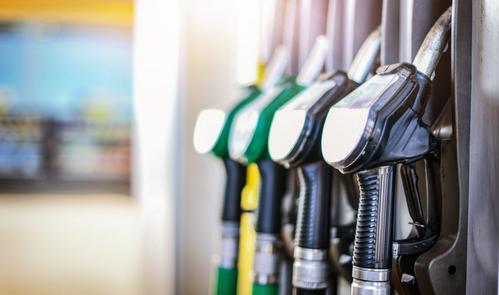Business
January Fuel Price Hike Adds Pressure to Over-Indebted South Africans

The new year has begun with yet another fuel price increase, leaving South African motorists and commuters grappling with higher costs. As of January 2025, 93 Unleaded petrol has risen from R21.15 to R21.34 per litre, while 95 Unleaded has increased from R21.47 to R21.59.
This marks the second consecutive fuel price hike, dampening the new year cheer for millions of South Africans. The increase is attributed to global oil price fluctuations and the Rand’s depreciation, which has further exacerbated the financial burden on consumers.
Over-Indebted Consumers Struggling to Cope
Neil Roets, CEO of Debt Rescue, warns that the fuel price increase will push already over-indebted consumers further into financial distress.
“South Africans are buckling under relentless price hikes in essentials such as electricity, water, and food. Many households are turning to credit just to survive January,” Roets said.
The strain is evident in South Africa’s latest Credit Stress Report for Q3 2024, which reveals that:
- Credit-active individuals increased by 1.4% year-on-year.
- Total loan balances reached R2.47 trillion, a 2% year-on-year increase.
- Overdue balances climbed to R194 billion, with credit card and home loan debts showing the largest increases.
The festive season has compounded the issue, with many South Africans overspending and now leaning heavily on credit cards and retail credit to make ends meet.
Slower Income Growth and Rising Inflation
Adding to the woes of consumers is slower income growth and stagnant employment, as noted in the South African Reserve Bank’s (SARB) Quarterly Bulletin for Q3 2024.
The TransUnion Consumer Pulse Survey highlighted that 25% of South Africans feel their household income is not keeping pace with inflation. Meanwhile, economists, including Investec’s Annabel Bishop, predict that inflation will remain above 4% in 2025, driven by geopolitical risks and potential Rand weakness.
Bishop warns that the Monetary Policy Committee (MPC) sees increased risks to the 2025 outlook, which could lead to higher global interest rates and further financial strain for South Africans.
A Vicious Cycle of Debt
The reliance on credit is becoming a survival mechanism for many. Roets cautioned, “A growing number of credit-active consumers are relying on credit cards to cope with rising costs. This is unsustainable and calls for urgent intervention from leadership.”
Unfortunately, millions of South Africans lack the financial means to rely on credit and must go without essentials each month.
Despite the grim outlook, there may be some relief ahead. Bloomberg reports that the Rand could rebound in 2025, potentially easing import costs and driving economic growth. This could provide some respite for overburdened consumers in the medium term.
What Can Be Done?
Roets believes that structural reforms and targeted interventions are needed to address the country’s deepening financial crisis. Solutions include:
- Policies to address stagnant wages.
- Support for households grappling with inflation.
- Mechanisms to reduce the reliance on debt.
South Africa’s January 2025 fuel price hike underscores the urgent need for action to address the country’s mounting economic challenges. With over-indebted consumers carrying 2024’s financial burdens into the new year, the cycle of debt is deepening.
Leaders and policymakers must prioritize strategies to alleviate the financial strain on South Africans and foster a more sustainable economic environment.
Follow Joburg ETC on Facebook, Twitter and Instagram
For more News in Johannesburg, visit joburgetc.com















